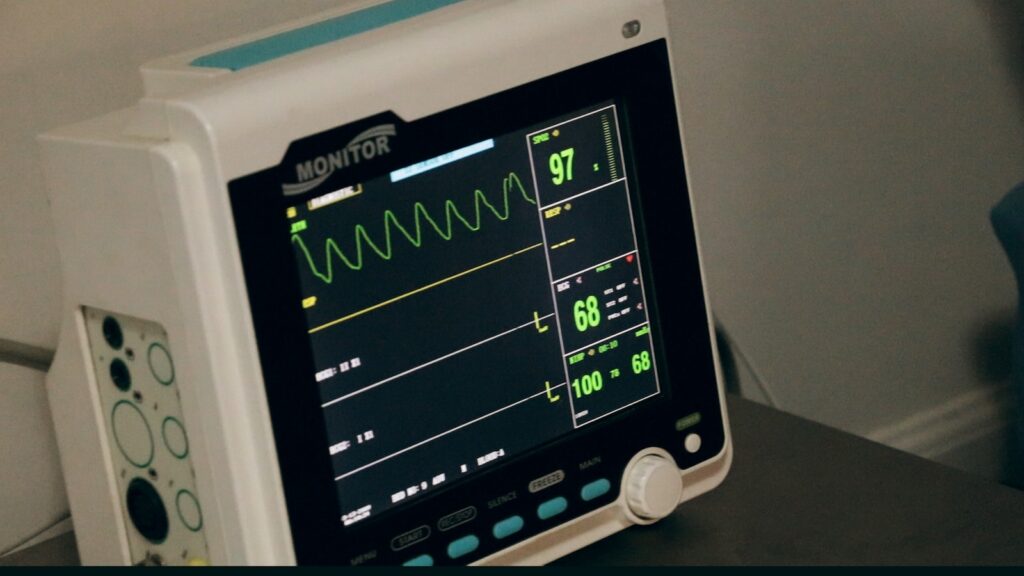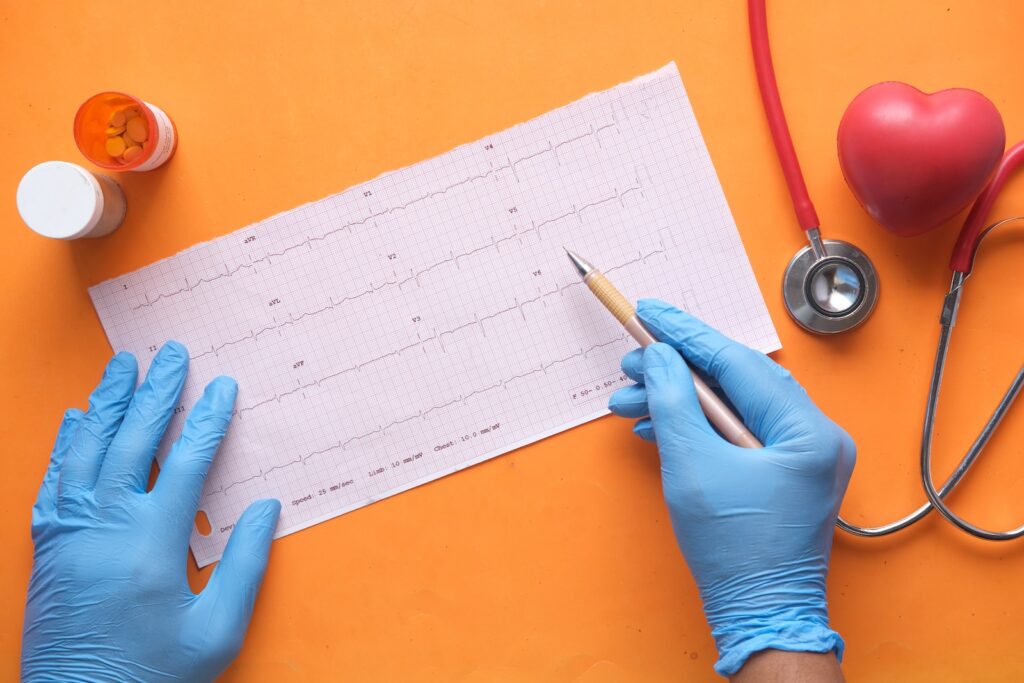Services

Just What is an Electrophysiologist?
Cardiac Electrophysiology is the science of elucidating, diagnosing, and treating the electrical activities of the heart. A specialist in cardiac electrophysiology is known as a Cardiac Electrophysiologist or Electrophysiologist.
An Electrophysiologist is a doctor who is an expert in diagnosing and treating issues with your heart’s electrical system. A type of cardiologist, they can do testing to find which area in your heart is causing a problem with your heart rhythm. They can properly diagnose and treat your heart rhythm abnormalities after a thorough medical history and non-invasive procedures. Once the electrical disorder is diagnosed, we will work with your doctor to determine the risk of the heart rhythm abnormality and recommend treatment. Together with your heart arrhythmia specialist, you will decide on the most appropriate treatment for you.
What Does an Electrophysiologist Do?
An Electrophysiologist diagnoses and treats conduction problems in your heart. They find out why your heart has an irregular rhythm and why your heart’s electrical signals aren’t going through the normal pathways. They can figure out what’s causing your electrical problem and where the problem starts. A Cardiac Electrophysiologist can tell the difference between an annoying but harmless arrhythmia and a dangerous one. Once they know what’s causing the issue, treatment can be started.


What is the Difference Between a Cardiologist and an Electrophysiologist?
An Electrophysiologist is a specialized type of Cardiologist. A Cardiologist treats heart disorders and diseases. Electrophysiologists are experts in the heart’s electrical system which controls your heart rhythm.
What Kind of Training Does an Electrophysiologist Have?
After medical school, Electrophysiologists fulfill a general internal medicine residency. They also complete a cardiovascular disease fellowship and then another year or two of training. Then they can pursue board certification from the American Board of Internal Medicine.


Where do Electrophysiologists Work?
Electrophysiologists work in private practice with other Cardiologists. They also work in hospitals and do testing in an electrophysiology lab. This is also known as an EP lab or catheterization “cath” lab.
Based on your diagnostic exam and test results, a Premier Heart Center Specialist will work with you to develop a treatment plan, which may include:
- Lifestyle changes
- Managing electrical abnormalities with medication
- Using different energy modalities to destroy specific areas of the heart causing abnormal rhythm (Minimally-Invasive Cardiac Ablation)
- Implanting a pacemaker that triggers the heart if it is beating too slowly
- Implanting a defibrillator to keep the heart from beating too rapidly (Implantable Cardiac Defibrillators)
Continued follow-up to ensure your goals are met is an ongoing part of the process.
What Diseases do Electrophysiologists Treat or Help You Prevent?
An Electrophysiologist treats heart issues that have to do with your heart rhythm. Many of these involve heartbeats that are irregular or too fast. Some conditions are more dangerous than others. Heart rhythm-related conditions include:
- Atrial Fibrillation
- Atrial Flutter
- Atrial Tachycardia
- Heart Block
- Wolff-Parkinson-White Syndrome
- Ventricular Fibrillation
- Ventricular Tachycardia
- Supraventricular Tachycardia (SVT)
- Premature Atrial Contractions
- Premature Ventricular Contractions
- Sick Sinus Syndrome
- Long Qt Syndrome
- Patient With Pacemaker or Defibrillator


Why Would I Be Referred to an Electrophysiologist?
Your doctor recommends an Electrophysiologist if they believe you have an electrical problem with your heart. You may see a Cardiac Electrophysiologist if your heart rate is faster or slower than normal or irregular instead of consistent.
What Kind of Tests Does an Electrophysiologist Do?
An Electrophysiologist can do rhythm recording or heart imaging to look for the cause of your issue. Many of these procedures are noninvasive. Some may require an IV in your arm.
Tests may include:
- Electrophysiology Study
- Tilt Table Test
- Electrocardiogram (EKG)
- Holter Monitor
- Event Monitoring
- Transthoracic Echocardiogram (TTE)
- Transesophageal Echocardiogram (TEE)
- Computed Tomography (CT) Heart MRI


Do I Need a Referral to See an Electrophysiologist?
Most likely, you’ll need a referral to see an Electrophysiologist. Even if your insurance company doesn’t require a referral, another provider will probably refer you when they suspect a heart rhythm issue.
What Can I Expect at an Electrophysiologist Appointment?
An Electrophysiologist will review your medical history and discuss any symptoms you’re having. They’ll also want a list of all medicines you’re taking, including those you buy without a prescription. A Cardiac Electrophysiologist may do a quick test like an electrocardiogram (EKG) or send you home with an event monitor that can record your heart rhythms for a certain length of time. If you’ve already had these tests, an Electrophysiologist may do a test that provides more information for a diagnosis. After making a diagnosis, an Electrophysiologist will make a recommend treatment. Together with your heart arrhythmia specialist, you will decide on the most appropriate treatment for you.


How Do Electrophysiologists Treat Heart Rhythm Issues?
Electrophysiologists can pinpoint your issue and determine the right treatment for you. It could be as simple as a new medication. Other people may need a device to ensure a reliable heartbeat.
Treatments include:
- Medicine – You take this regularly or as needed such as pill on the pocket or receive it in an IV when the need is urgent.
- Pacemakers – These use electrical impulses to correct an issue with your heart’s electrical system.
- Implantable Cardioverter Defibrillators (ICDs) – These can shock your heart when you need it.
- Cardioversion – An external device shocks your heart to get its rhythm back to normal.
- Catheter Ablation – An Electrophysiologist uses this to make scars that keep irregular impulses from getting through and causing abnormal heart rhythms.
When Should I See an Electrophysiologist?
You should see a Cardiac Electrophysiologist when you’re having symptoms that include:
Many heart rhythm issues have similar symptoms in common. It takes an Electrophysiologist’s expertise to determine which kind of abnormal heart rhythm you’re having.
- Shortness of breath
- Chest pain
- Heart palpitations
- Recurrent dizziness/syncope

Some information contained on this website is courtesy of: https://my.clevelandclinic.org/health/articles/24039-electrophysiologist
To learn more about heart rhythm abnormalities, symptoms, treatments and much more, visit www.hrsonline.org.






